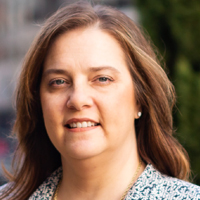
Alzheimer’s. I cannot seem to escape the incredible devasting impact of its long tentacles. Last night, I was on the phone with a friend who was trying to quickly navigate “What do I do with mom?” It had rapidly become unsafe for his mother to live by herself.
Between learning available options on the fly, gaining consensus among siblings, and having other family step in immediately to help, one quickly realizes it takes a village to care for a loved one with this illness. The effort is nothing short of a full-time job with a big dose of emotional exhaustion.
Earlier the same day, I received an email from a potential client and I could feel her desperation as she used words like “overwhelming” and “everything sucks.” She is 400-plus miles away from her mom who has dementia. She had so many things that were on her mind: What do I do with mom’s IRA? How do I organize payments to the now 24/7 caregivers that are costing $8,000 to $10,000 per month? How do I find a memory care facility?
Unfortunately, I know all too well the devastation, exhaustion, stress, time and money that Alzheimer’s disease can have on a family.
As a daily money manager — a role I’ll explain shortly — many of my clients come to me because a family member is afflicted with Alzheimer’s or another cognitive disability and can no longer handle their daily financial affairs. I also have had a front-row seat to this dreaded disease within my own immediate family and among many extended family members.
Early Warning Signs
While so many family members find themselves in crisis mode along the Alzheimer’s journey, there are some early signs regarding finances that are noteworthy. The Alzheimer’s Association states:
• “Some people living with dementia may experience changes in their ability to develop and follow a plan or work with numbers. They may have trouble…keeping track of monthly bills.”
• “Individuals may experience changes in judgment or decision-making. For example, they may use poor judgment when dealing with money…”
Balancing a checkbook or making impulsive, risky financial decisions plagued a few of my family members in the early stages. It’s so easy to overlook or give your loved one a pass early on because the disease is so sneaky in how it manifests. Although your loved one may seem perfectly normal otherwise, do keep a keen eye for this, especially if it becomes a repetitive issue.
“It’s so easy to overlook or give your loved one a pass early on because the disease is so sneaky in how it manifests.”
Each person has a rhythm with their finances. Thus, financial advisors should watch for changes in client’s financial behaviors that don’t align with their historic patterns or goals. For this reason, it is important for financial advisors to have a “trusted contact person” on file.
While there are many reasons to have clients fill out a “trusted contact person” form, FINRA states, “If your brokerage firm suspects that you are experiencing a health issue, adding a trusted contact person to your brokerage account may help your broker confirm your current health status.”
What’s a Daily Money Manager?
As a daily money manager (DMM), I too have my clients fill out a trusted contact person form upon signing my letter of engagement. I need to have the legal authority to reach out to someone should I suspect a client may lack capacity to make decisions.
You may be thinking, “What is a daily money manager?”
Unlike a financial advisor who assists clients with investments and retirement planning, a DMM provides a complementary role in assisting with daily financial matters. Every DMM’s business may look slightly different. Some DMMs may focus solely on supporting seniors, while others may engage only in helping small businesses. My company, Fiscally Balanced®, LLC helps clients specifically with budgeting, spend analysis, cash flow, bill payment and fiduciary services.
Typically, our clients reach out due to a lack of ability, knowledge or time. We take away the burden of organizing financial paperwork and help with daily financial tasks. But what does that really look like?
Oftentimes, DMMs are contacted by a family member or a financial power of attorney (POA) who is trying to help manage the financial affairs of an individual who is no longer up to the task. That individual may be suffering with Alzheimer’s or some other form of dementia, or he or she could be a veteran with cognitive impairment.
Additional Reading: Trouble managing money may be an early sign of dementia
Financial Triage
In most cases, we step in and end up triaging all financial matters. Putting together a plan and executing that plan can include coordinating with the financial advisor, accountant, insurance agent and/or other financial professionals. We can also coordinate the exchange of financial paperwork with these professionals so each of us can do our respective roles on behalf of our shared client.
DMMs also review incoming mail and/or emails; discern what is junk, scam or needs to be reconciled for payment; pay bills; and balance bank accounts.
Bill payment services tend to sometimes bleed over into budgeting, spend analysis and cash flow services, which some daily money managers also offer. DMMs are not only for those who lack ability, but also for those who lack time.
Busy professionals are a large part of my business. It’s a win-win when we take this burden away from folks who value time over money or just flat don’t have the desire to learn and create a new financial path on their own.
One of my clients had fallen behind on paying her bills on-time while working full-time, attending college part-time to earn another degree, volunteering, and juggling commitments with friends. After we talked about her goals of why she hired me to help her, I gathered asset and liability information for her net worth, along with additional details from her paystubs, bills and banking statements.
My client provided me access to her bank so I could pay her bills and I provided her with a path forward by mapping out a spending and cash flow plan for the remainder of the year. The end result is a solid, repeatable process we put in place with great transparency. She can take it over at any time, and if she wants to leave it in my hands, it gives me as much efficiency as possible.
Another Set of Eyes
Daily money managers who serve as named agents can also be helpful by proactively gathering information up front from clients on their life insurance policies, income sources, debts, burial wishes and passcodes to their phone to cancel online memberships, etc. This way, no one is left digging through that person’s house looking for paperwork to give them clues of where to find assets and liabilities. Some daily money managers, like my company, can serve as an executor, trustee or financial power of attorney. Alternatively, we can assist others that are named as agents in the same activities we would do if we were named, but under their guidance.
Daily money managers can also help protect the aging population from the growing problem of financial exploitation. The National Council on Aging estimates that elder financial abuse and fraud ranges from $2.6 billion to $36.5 billion annually A recent Fidelity Investments article referenced that more than half of these crimes are committed by family members, friends and caregivers.
Recently, I had a bank president call me on behalf of one of his customers who was being financially exploited by his own son. The bank president was looking for someone to step in and help his customer manage his finances. Having another set of eyes on one’s personal finances can certainly help uncover suspicious account activity and in this case this gentleman was lucky to have his own bank looking out for him.
Still, one must be careful when turning over the keys to the kingdom. I always recommend hiring a daily money manager who is a member of the American Association of Daily Money Managers (AADMM). Members must adhere to a code of ethics and high standards of practice along with being independently background checked every two years. It is important that thorough due diligence is done before hiring someone who will be given access to any financial accounts.
I encourage financial advisors to partner with a daily money manager as another defense for their clients against an older population plagued with bad actors trying to financially exploit them and diseases like Alzheimer’s that are leaving them defenseless.
Paula K. Canaday-Daeke, a daily money manager (DMM) is the owner and founder of Fiscally Balanced®, LLC. She is a member of the American Association of Daily Money Managers (AADMM) and is on its national board. She can be reached at paula@fiscallybalanced.com or 706-927-8659.







